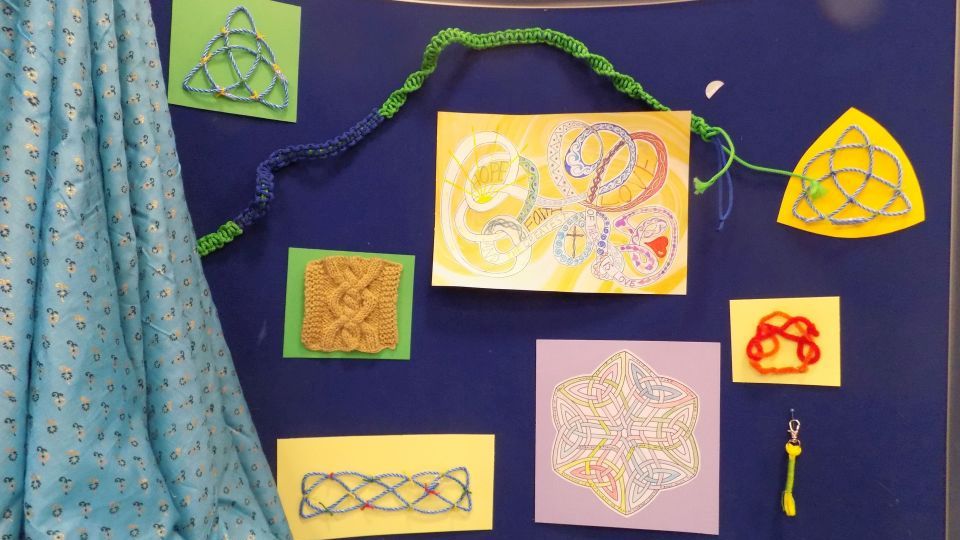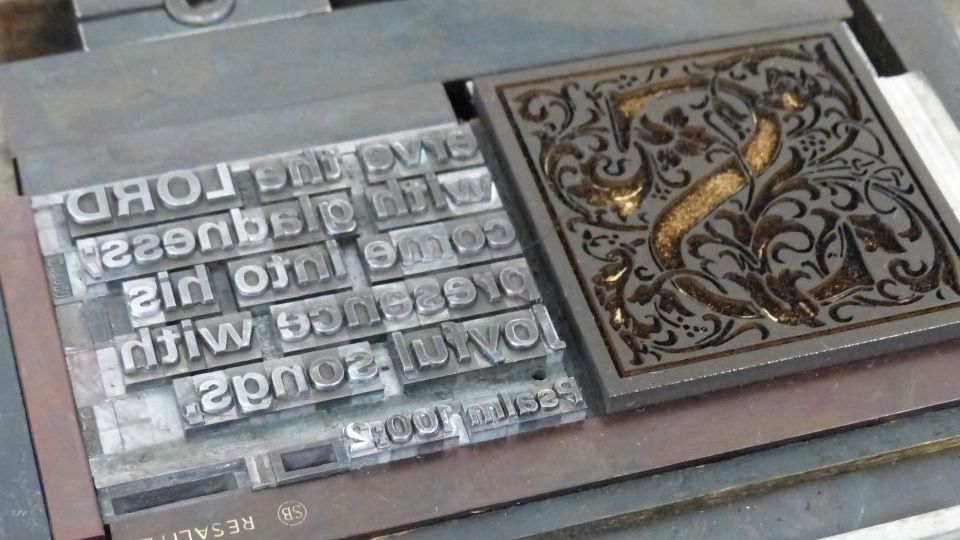Here is a new emotive worship resource for Good Friday consisting of two solo dramas and a prayer. If you are struggling for inspiration this Easter, this could be your starting point! These three pieces by David Stolton are written to be used together in worship, most appropriately for Good Friday.
The first two are solo dramas, the third piece is a meditation or prayer which takes some elements of the two dramas into the prayer. A central focus could be created using rotting wood, ivy, plants and moss to represent the remains of the cross described in the drama.
Pilate: Return to Golgotha
 I come at night. Unseen. Dressed in plain robes. No-one would know me, recognise me … even notice me. And there is never anyone here, in this place.
I come at night. Unseen. Dressed in plain robes. No-one would know me, recognise me … even notice me. And there is never anyone here, in this place.
Golgotha, the Jews call it, place of the skull. There is always a cold wind here, so it seems, especially at night.
She is asleep – doesn’t hear me go, or return. She told me to have nothing to do with him, to keep out of it, let the Jews sort it out. She was right … she’s always right, a wife’s prerogative. I should have listened.
I still remember his eyes. Looking at me, as he said nothing. So frustrating – and when he did speak he just answered me in questions or riddles, confused me, wouldn’t let me think clearly – what, – who was this man that so incensed the Jews, yet so entranced me. Those eyes, deep, not threatening, not even accusing as I handed him over – finally. As if he could sense the confusion inside, as if he could read my very mind, see my very soul. Piercing, like daggers in my mind.
No, not daggers. There was no malice, no evil and no violence in him. No fault at all, no matter what the Sanhedrin and loud Jewish mouths were saying.
Was it all fixed, and me, just the scapegoat (to borrow one of their terms), just the fall-guy? I washed my hands – I did – then and over and over since. Over and over. Washed them of his blood, washed them of the guilt she reminds me of each time she looks at me. Innocent, she said … innocent, even after all the questions and his riddle answers, still innocent.
She doesn’t know I come – I said that – she doesn’t know. Doesn’t suspect. I can’t let her see, of all people, let alone anyone else.
Pilate, fifth prefect of the Roman province of Judea.
She was ambitious for me, said it would lead to greater things under Tiberius. But it simply led to this. It’s not even that greater post, no real power, apparently not much judicial authority either, just manipulated by the Jews and other tribes, and collecting the tax. I’ve angered them before, angry myself at these Jewish upstarts, thinking they have some sort of authority in all of Rome, with our legions and our power. But under it all, we don’t have the power really. The Sanhedrin knew that.
And he did. He had the power, the authority. The command of anything and everything I said. Even chained and beaten and scourged half to death he knew I had no authority over him really. So I told them, the crowd, that he was their King. And so they killed him.
Here. In this God-forsaken place.
Except that it isn’t. Here I find him again, somehow. I know they speak of his rising again or some such nonsense, but for me, I feel him here. Not accusing me – I do that, she does that quite enough – but he doesn’t.
This is the only place I find peace. Rest. Where my tortured mind can be still.
And no-one’s moved the cross – it still lies where they left it after his limp body was removed. Here with signs of rot and decay, nature reclaiming this bloodstained signpost of death, wrapping it in ivy infesting it with bugs and fungus and rot. I thought bounty hunters would claim it, keep it for mementos perhaps, but it seems no-one cares, as if it has no significance anymore – perhaps because of those rumours of him being alive.
But I find my peace here. Forgiveness even, somehow.
Washed clean by his blood.
© David Stolton, 2015
Mary: Return to Golgotha
I usually come early in the morning. Before most folks are around. I don’t want people to talk, well, gossip, misunderstand. In fact, I don’t fully understand why I still come.
I know it didn’t finish here, I know I saw him again, I know … oh I know so much more now … but I still feel I need to come here. This abandoned place, two sticks of wood with their ugly statement of death, the dry sand still stained … or so it seems, still stained with his blood, and my tears.
I do need to remember. Not the agony, the screams, the weeping – yes those are still real, but to remember him. My Son. That he would go through all that … that excruciating pain, humiliation and tearing apart from God, yes, his Father God – wrenched from this world to a darker place so that I never need go there – or anyone needs to for that matter. I need to remember that he did it for me too – yes his own mother, that close bond, that unbreakable bond between mother and son – yet he knew my pains, my sins, my selfishness of not wanting to let him go for what God had planned for him, my selfishness of wanting to keep him for myself.
But God trusted me. Right from that first strange night when a messenger said I would bear a son – the son of God no less. Imagine. Me – just a young slip of a girl … but … well you know how it panned out … and I wouldn’t change a thing – couldn’t change a thing.
And it did hurt so. Letting him go. Letting them kill him. Seeing him hang and suffer after that whipping and beating and … I still need to remember, or all the rest, what came after means nothing. For me, for all of us.
Without this, without this awful place none of the rest, none of what Peter and John and the rest of them have done since would have been possible. Without this I would not know his presence within me with such a reality beyond even his presence here in Galilee. Without this there could have been no resurrection, no hope, no life beyond what we know here under Roman tyranny and cruelty.
Without this, I could have never really let him go, let him be what God intended – awful as it was – the choice given to humankind – yes we all still blame Pilate but it wasn’t the man’s fault that he was … just a man, weak like the rest of us, representing the choice we all have in just a few words. The whole of humankind made the choice, makes the choice, that leads to this. That selfishness, of which I was also guilty – of wanting it all for ourselves – even if what we want is him.
None of this … this space, this world belongs to us, yet we have coveted and grasped its goodness as if it were our own. And he doesn’t belong to us … even to me – he was – is – for the world, everyone, and here – right here – that is where he proved it once and for all. Took death – my death, our death on his shoulders and broke that bond for ever.
So I keep coming – not to remember the pain and suffering – but to remember the gift he gave me – gives us all. Life out of death. And here it is, these dead sticks, this dust, these stones, yes life is here again, ivy creeping up the wood, insects finding homes in crevices and knots, plants creeping to cover blood stained sand. God hates death, and he reminds me this place is not for remembering death.
It is for remembering life.
© David Stolton, 2015
Meditation/Prayer: Golgotha
This place is not for remembering death.
It’s for remembering life.
It’s not easy to grasp, Lord, these concepts of life and death you throw at us as if we can understand their complexities. Here at this place you suffered, you died, an agonizing death which our humanity cries out against, mourns its awful reality. Sadness, grief, bites into our souls as we dare to think of your death, yet we come time and time again, year after year, rehearse the awful events as if some annual school play we have to endure, to go through to reach the end of term, that glorious resurrection of Easter. As if we have to make ourselves sad in order to appreciate the joy of Easter. As if there is some need to reinforce our guilt at the foot of your cross, so that we can know your forgiveness.
Sad songs, with mournful tunes, bemoaning your death when it is your life, your new life, the resurrection we know to be true.
Sad for a day.
Just one day. One day in the year. Is that all your death was worth? Do we, like Pilate tried, over and over – do we seek to wash ourselves of any memory of your suffering or our guilt with the cleansing freshness of resurrection? Absolved with remembering, for one day.
Good Friday. Not Mournful Friday or Sad Friday or … just Good Friday. It’s difficult to understand the concept of you being glorified on the cross, Lord. That ghastly place. Difficult to understand how it is good. Even with the knowledge of Easter we still wonder why you had to go through all that, all the awful beating and scourging and crown of thorns and nails and hours of suffocating hanging in the heat until that final cry.
But we are here again Lord. At the foot of the cross. It draws us, like Pilate, like Mary, it draws us back somehow. And it’s not our guilt, even our sorrow that’s enough Lord – is that even what you want here? Our repentance for selfishness, for wanting to go our own way, even of wanting you just for ourselves, coveting the memories, the stories, even the places as if somehow they are our own? Bethlehem, Nazareth, Galilee, Gethsemane, Calvary and the empty tomb – as if they are our places Lord, our refuges we return to for comfort, for the familiar signs of our faith, rehearsing the stories, creating the scenes, as if some graven images we even dare to sanctify.
It is not the place, not even the cross Lord. Just places and symbols, reminders of your love shown to us in the rawness and inhumanity of our human-ness, our own cruelty, our own rejection, our own seeking to cleanse ourselves, our own seeking to hold you, keep you.
As if that were even possible. You came for the world. Calvary, Golgotha the cross that backdrop for the greatest love gift of all. For us, for the world.
So take us Lord, all that we were, all that we are, all that we hope to be, here at the foot of your cross with the knowledge of your resurrection, wash us clean and fill us with your new life that we might tell of the good news of Calvary in the full knowledge of the joy of the empty tomb.
For, Lord, this is not a place for remembering death.
It is for remembering life.
Eternal, for ever, in your name. Amen.
© David Stolton, 2015









